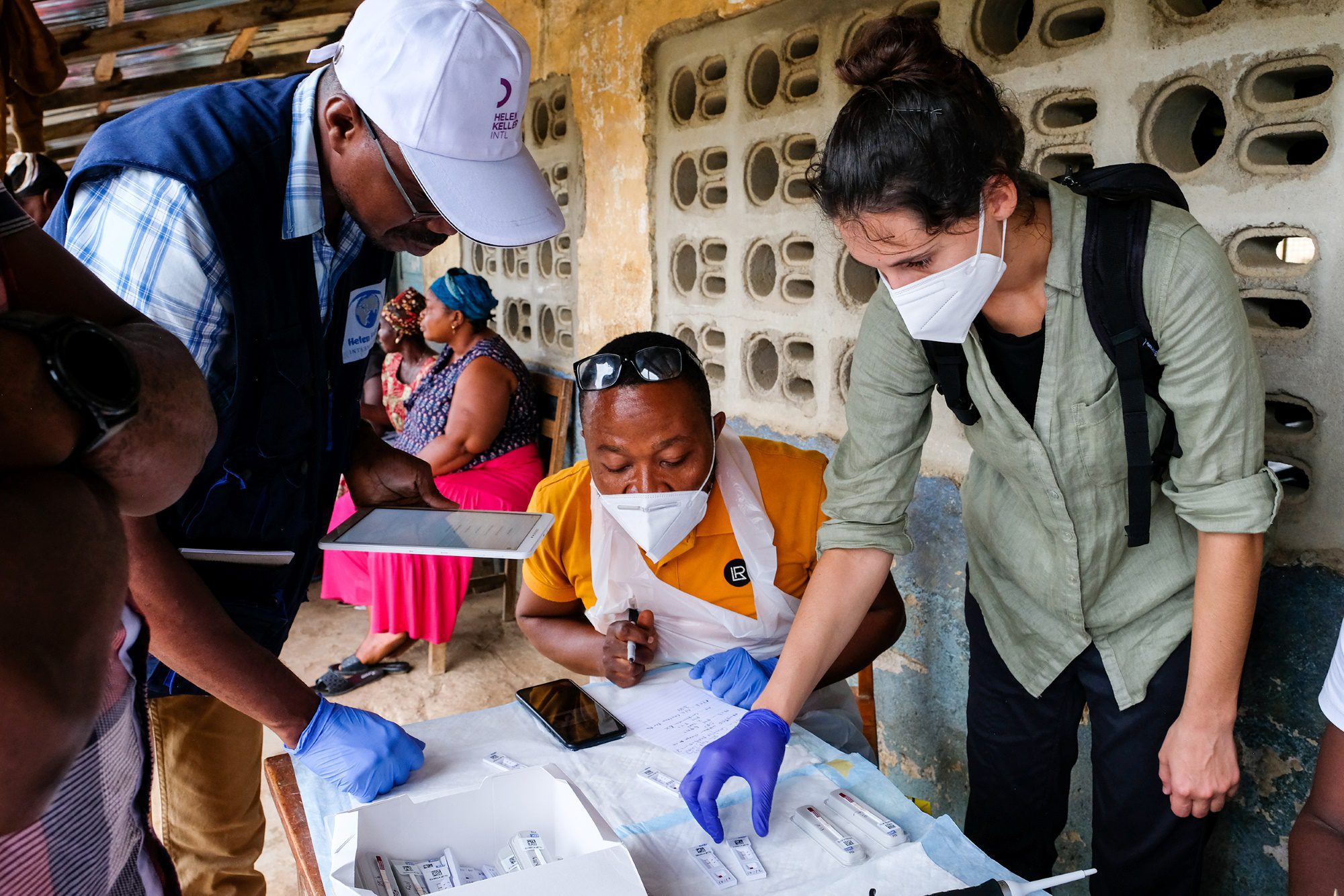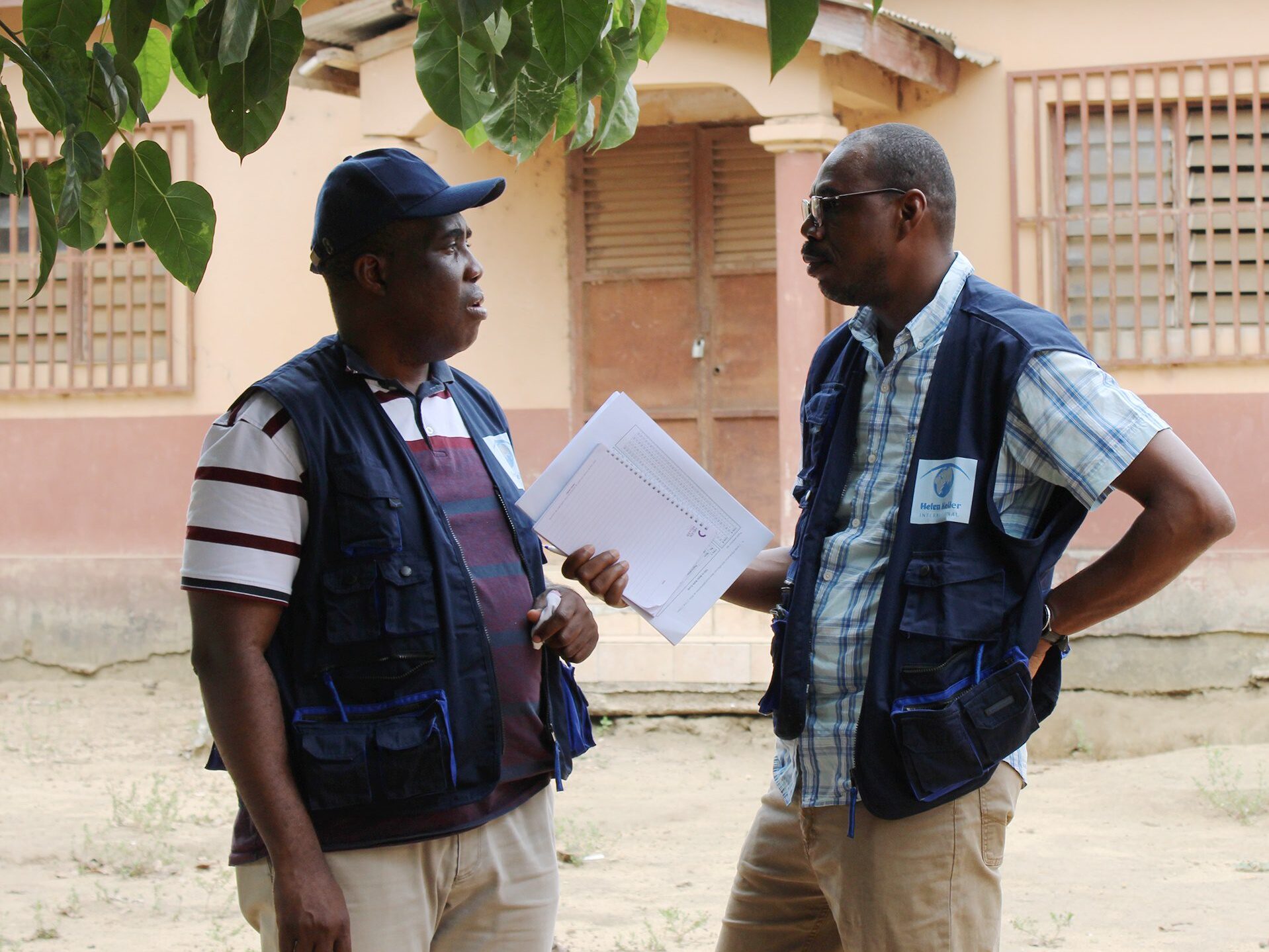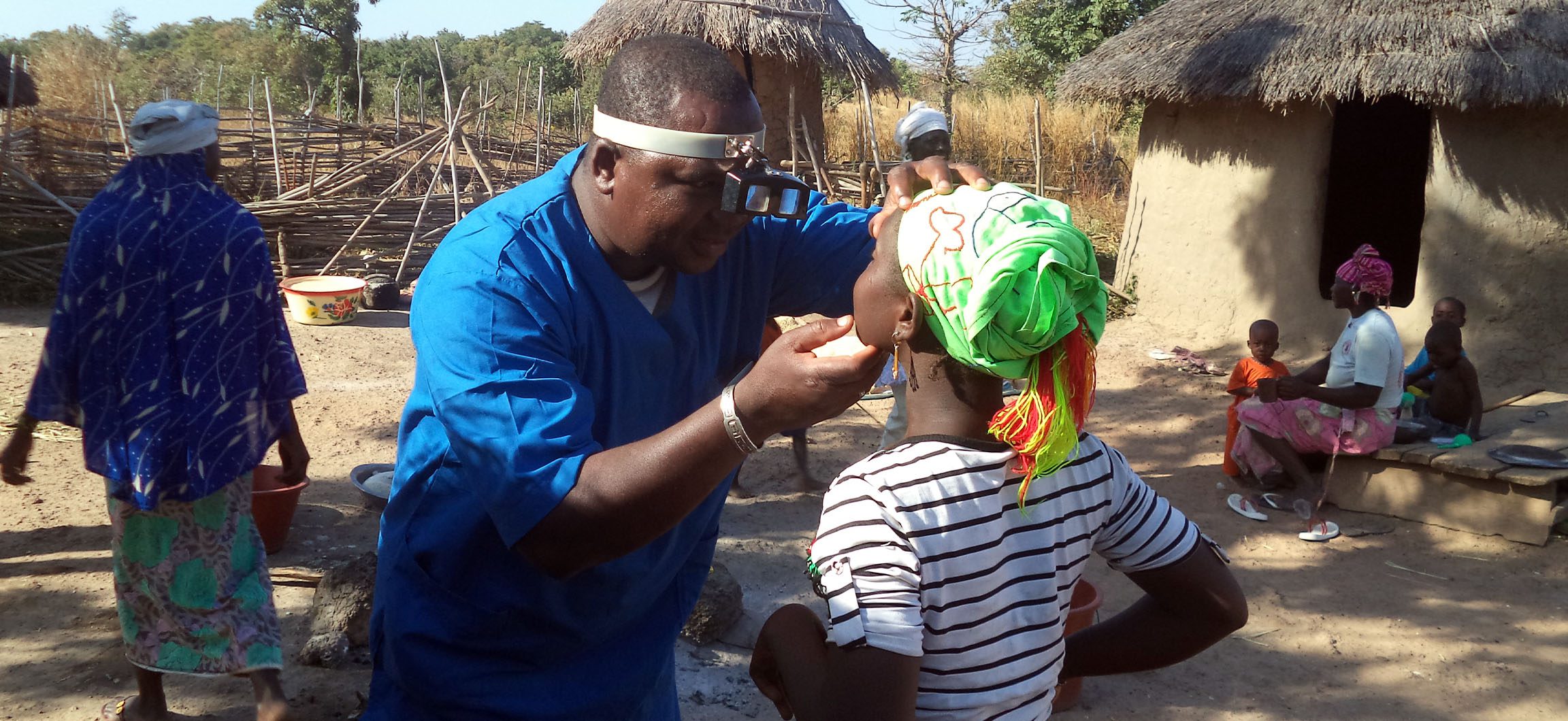Looking Bravely: Eliminating Blinding Trachoma in Mali
We recently spoke with Benoit Dembélé who is our Regional Technical Advisor for Neglected Tropical Diseases in West Africa. Benoit helps Helen Keller Intl’s teams across Africa ensure quality treatment to prevent and eliminate neglected tropical diseases. Most recently, Benoit and his team worked alongside the Malian government and partners The Carter Center and Sightsavers to eliminate trachoma as a public health problem.
What is trachoma? How does it affect people?
Trachoma is an infectious eye disease often caused by poor hygiene, including through dirty hands, faces, linens, and clothes, as well as by flies. It causes constant eye irritation and discomfort. The most common complication is called trachomatous trichiasis, which is when the eyelashes scratch the cornea, which can cause blindness.
One man told me it was impossible to work on his farm because of the terrible itching and vision loss from trachoma. After receiving surgery to save his vision, he was able to resume farming and said he could provide food for his family again.
Why is the elimination of trachoma in Mali such a big milestone for Helen Keller Intl? How did you feel when you heard the news?
I’m from Mali, so, I’m very excited about this news and proud to be a part of this achievement. This is the first time [Helen Keller] has supported a country to reach this milestone, eliminating a disease that was endemic across the whole country. In addition, our co-founder Helen Keller’s teacher Anne Sullivan also lost her sight due to trachoma. So, it is meaningful for us to contribute to trachoma’s elimination as a public health problem.

What were some of the challenges we and our partners faced in eliminating trachoma in Mali?
Mali is a vast country with a complex security situation and trachoma was endemic throughout every region. These were major challenges that made it very difficult for us to work in remote areas.
Helen Keller introduced an approach that engaged local staff and volunteers as much as possible because it was safer for them to work in their own communities. By training community health workers to distribute medication and conduct surveys, we were able to expand our reach to the most isolated, insecure areas of the country. We also created communications tools to help women’s clubs, radio DJs, and volunteers educate people about trachoma symptoms and prevention.
Given how effective this strategy was in Mali, other countries are now applying this approach in their fight against neglected tropical diseases.
How does Helen Keller help governments control and prevent neglected tropical diseases?
Helen Keller partners with governments to conduct mass drug administration for five neglected tropical diseases, lymphatic filariasis (elephantiasis), trachoma, onchocerciasis (river blindness), schistosomiasis, and soil-transmitted helminths (intestinal worms). We treat everyone in the area affected by the disease each year to prevent and treat infection.
Community health workers are key in the preventative medication strategy. They volunteer to give medications to their own community, either going door-to-door or staying in a fixed location to treat eligible people. It wouldn’t be possible for healthcare workers to provide all of the medication timely and efficiently. [Community health worker’s] contributions are essential to the elimination of these diseases. In my early days of working with the National Eye Health Program of Mali, there were more people needing surgery to prevent blindness from trachoma than we could keep up with. As we worked with partners to expand mass drug treatment, we saw fewer people who needed surgery. This showed me firsthand the impact that preventative treatment can have.

What comes next for neglected tropical disease work Mali and across Africa?
The elimination of trachoma as public health problem in Mali is a good sign to show that it’s feasible to eliminate the disease even in a vast, endemic country with a complex security situation. It helps build confidence that it is possible to eliminate these diseases and help people and communities lead healthier lives.
Helen Keller is excited to be part of a number of upcoming milestones. We are close to eliminating lymphatic filariasis as a public health problem in both Mali and Cameroon and we also hope Niger will very soon be the first country in Africa to eliminate onchocerciasis.
What keeps you motivated to do this work?
The impact of neglected tropical disease interventions is visible and measurable. This is not the case for all the public health programs. With our intervention, especially disease management and disability prevention, you can give a new life to a person facing social stigma. This is unique and goes to the heart of what our organization seeks to achieve.

Help ensure children and families can live free of blinding diseases, like trachoma.









